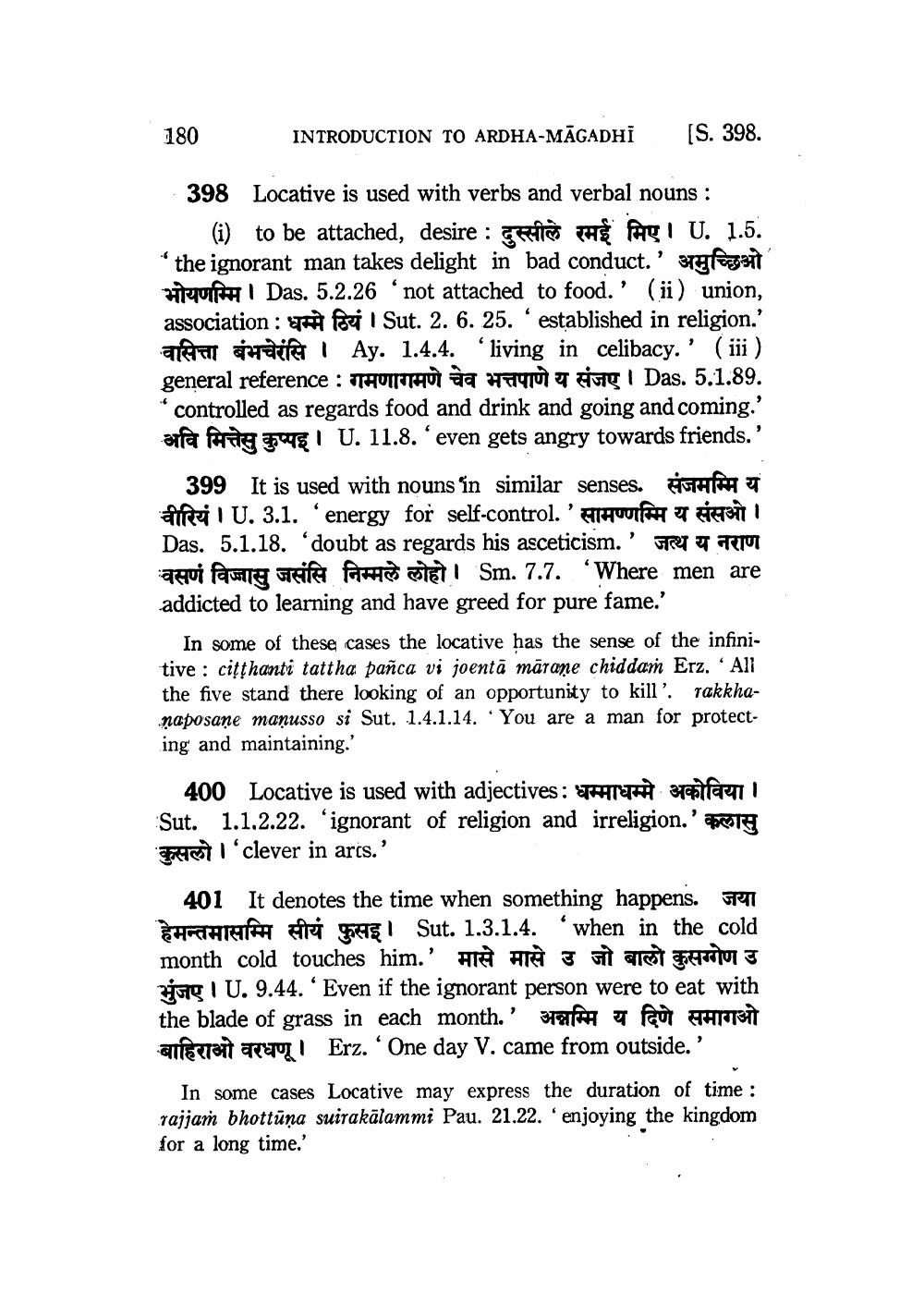________________
180
INTRODUCTION TO ARDHA-MĀGADHI
(S. 398.
398 Locative is used with verbs and verbal nouns :
(i) to be attached, desire : R THE PASI U. 1.5. “the ignorant man takes delight in bad conduct.' se ferait
eft I Das. 5.2.26 ‘not attached to food.' (ii) union, association : forum | Sut. 2. 6. 25. established in religion.' afa tekiti Ay. 1.4.4. 'living in celibacy.' (iii) general reference : THUTHU WA TITŪT CIUTY I Das. 5.1.89. * controlled as regards food and drink and going and coming.' afa PTE € U. 11.8. ' even gets angry towards friends.'
399 It is used with nouns in similar senses. SARAH af I U. 3.1. 'energy for self-control. 'AlHOUH PASTI Das. 5.1.18. 'doubt as regards his asceticism.' FPT EM agui family tree farm DIET I Sm. 7.7. “Where men are addicted to learning and have greed for pure fame.'
In some of these cases the locative has the sense of the infinitive : citthanti tattha pañca vi joentā mārane chiddam Erz. ‘All the five stand there looking of an opportunity to kill’. Takkhanaposane manusso si Sut. 1.4.1.14. You are a man for protecting and maintaining.'
400 Locative is used with adjectives : T r ailaren i Sut. 1.1.2.22. 'ignorant of religion and irreligion.' ATE SHOI' clever in arcs.
401 It denotes the time when something happens. FPT SHPATA Firei 25 l Sut. 1.3.1.4. when in the cold month cold touches him.' मासे मासे उ जो बालो कुसग्गेण उ
y 1 U. 9.44. ' Even if the ignorant person were to eat with the blade of grass in each month.' अन्नम्मि य दिणे समागओ allerait arato! Erz. 'One day V. came from outside.'
In some cases Locative may express the duration of time : Jajjam bhottuna suirakālammi Pau. 21.22. enjoying the kingdom for a long time.'




